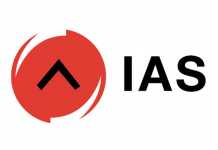Wits University, in conjunction with MIT Sloan School of Management, has opened applications for teams interested in participating in the MIT Global Start-up Labs Programme. Taking place at Tshimologong, Wits University’s Digital Innovation Precinct from 24 June – 29 July, this intensive programme will provide opportunities for participants to learn and experience the process of innovating and building a technology start-up.
JCSE director and Tshimologong founder, Prof Barry Dwolatzky, says that applicants need to exhibit a sense of cohesion, drive, and creativity: “We are looking for teams of three to five people who either already have a start-up idea, or are in the nascent stages of pursuing it already. This is a fantastic opportunity to boost entrepreneurship and technology, which is vital to the development of our local economy.”
He says that through the MIT curriculum, classes will cover how to create a business model and how to develop an app. Each team is required to have at least one technical team member that can code or develop app wire frames.
To be accepted into the programme each team member must complete one application (http://bit.ly/2pLVz1j) and once accepted, each team will receive an email confirming their acceptance. Entries close on 24 May and all successful teams will be notified by 9th June 2017.
For information on the MIT Global Start-up Labs Programme visit https://www.facebook.com/mitgslsa/. If you have any queries, please email SouthAfricaGSL@gmail.com.
About the JCSE
The Joburg Centre for Software Engineering (JCSE) is a three way partnership between government, academia and industry. Based at Wits University, the JCSE is multifaceted with various programmes and facilities positioning it as a focal point of a software development industry for South Africa and the rest of the continent.
The JCSE strongly supports the City’s “Joburg 2030 Vision”, which sees Johannesburg becoming a World Class city with service delivery and efficiencies that meet global best practice. It supports this goal by promoting best practice in software development within an African context; growing the country’s capacity to deliver world class software; and developing research and training initiatives to strengthen the local software development industry.























































































